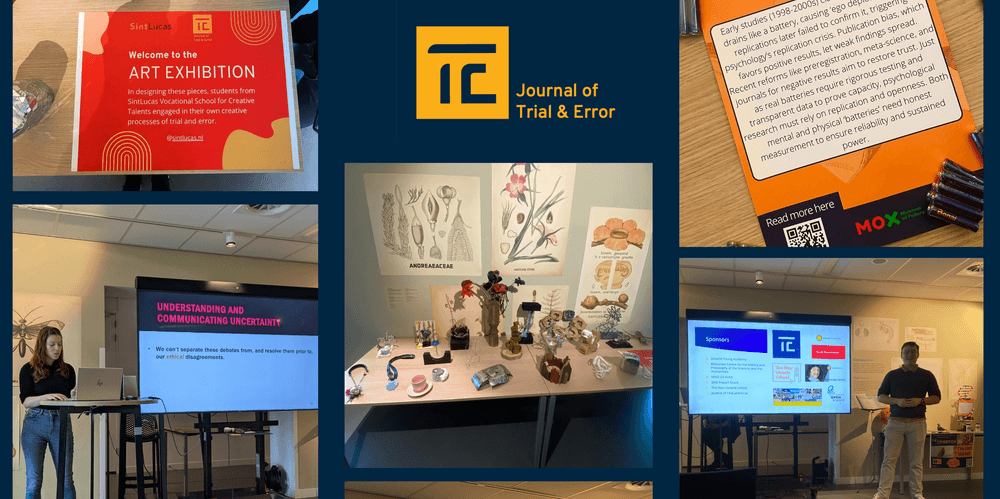~ 3 min read
The Most Wonderful Time of the Year
Stefan Gaillard, our secretary, remembers promoting our Journal for the first time.
It truly was the most wonderful time of the year: the last Descartes Centre Colloquium of 2018. The Descartes Centre, of course, is a place of legend, it is right up there with El Dorado, the Vatican Archives, and Harvard Business School. The thing that sets the Descartes Centre apart is that it is the only one of the four that is a joint collaboration of all seven Faculties at Utrecht University. In their own words, the Descartes Centre ‘contributes to the social and political debate by critically reflecting on the foundations and the dissemination of scientific knowledge and the role of rhetoric in these processes.’ Exciting times indeed!
How does the Descartes Centre achieve these contributions in practice? Firstly, the Descartes Centre facilitates research into the humanities aspects of science by bringing scholars together and providing institutional support. Secondly, it provides education on the Bachelor and graduate level. At the Bachelor level, two optional minors are offered to Bachelor students from all faculties. At the graduate level, the History and Philosophy of Science Master ‘offers a unique opportunity to study the foundations, practices, and culture of the sciences and humanities from a historical and philosophical perspective’. This is the program most of us are following. Lastly, the Descartes Centre hosts several colloquia throughout the year, supporting research and education.
Of these colloquia, the December colloquium is a special one, semi-centered around Christmas and with the opportunity for students to give a talk as well. Because nothing screams Christmas more than launching a journal for failed science, we decided to give a talk. All four of us. It went as well as you might expect, which is to say… not too terrible! Less cynical people might even say it went quite well. Amidst talks about Santa Claus and Sinterklaas, Donald Trump and rakes, and the history and philosophy of wine, we steamed ahead to deliver the latest news on the replication crisis, publication bias, and awesome journals. Our talk was received with thunderous applause (as was every other talk that day), with sadly no time left for questions or criticism. Our newsletter sign-up was quickly filled with the information details of around four of our classmates who had also attended the colloquium (if you’re reading this, we appreciate you!).
Afterwards, there was plenty of time for us to toast our success with free wine, beer, and fancy food. We planned the next step in our nefarious plan to publish serendipitous science. Because at the end of the day, those are “failed” science findings: occurring or discovered by chance in a happy or beneficial way. Scientists often don’t see it that way due to the frustration surrounding “failed” science, but we - perhaps somewhat naively - hoped to change the perceived drawbacks and benefits of unexpected results.
By given our talk, we had hoped to gain feedback from the community and perhaps even some institutional support. We did not succeed in the former, but there was already some speculation that we might be able to get some help from the Descartes Centre. Our next step was to explore the options for structural support and to find a new platform to ask for critique. The latter we found at the Open Science Community Utrecht...

Stefan Gaillard specializes in failure, uncertainty, and erroneous claims – both in science and society. He is one of the co-founders of the Journal of Trial and Error and currently works on the special issue on scientific failure in the health domain.
License
The Most Wonderful Time of the Year by Stefan Gaillard is licensed under a Creative Commons Attribution 4.0 International License.




